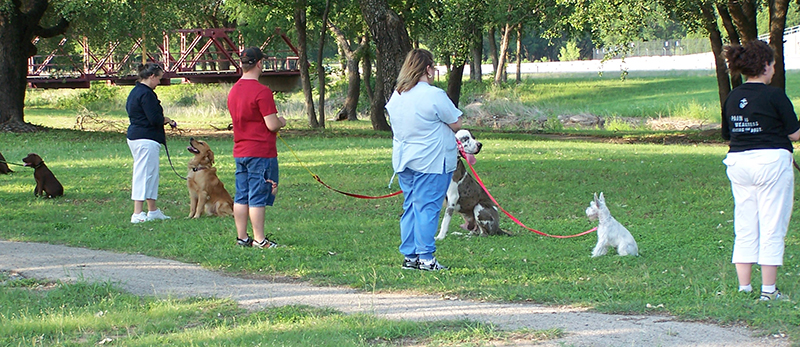We all want a dog that is an outstanding hunting partner and a true competitor on the test grounds. At Kanati Kennels we strive to produce highly motivated performance dogs that are great companions at home as well as in the field. It is my philosophy that flexibility in training is of the utmost importance, since every dog is unique and presents a different challenge.
It has been pointed out to us at hunt tests that our dogs always seem happy going to the line. We take pride in finding what makes a dog “smile” and strive to keep that dog enthusiastic while in training.
Keep in mind that not all dogs learn at the same rate. A dog may take more or less training time depending on desire, trainability, and working attitude.
Listed below are the training levels offered:
- Puppy Training
- Basic Retriever Training
- All Breed Obedience Training
- Intermediate Retriever Training
- Advanced Retriever Training
- Hunt Test Training/Participation
Puppy Training
Puppies are welcomed into our kennel at any age. For a gun dog, early training is crucial to develop the desire and skills to go forward into more advanced work. Some owners do not know what to emphasize in early training, or may not have the time to spend.
We love puppies and are happy to spend quality time in short training sessions to help build the foundation for a working retriever. Puppies get enough retrieves to build desire, but not so many that they get bored. They are introduced to crates, leashes, gun shots, duck calls, other dogs, and lots of people. If they are reluctant to swim, we swim with them and make it loads of fun.
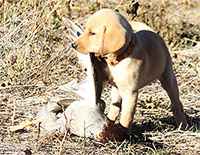
Basic Retriever Training
The first and most primary steps to retriever training. A dog must be obedient in order to perform retrieves. Basic commands such as SIT, HEEL, HERE, STAY, DOWN, KENNEL are instilled by repetition and praise. Once these commands are solid, an electronic collar is used to reinforce these known commands. Electronic stimulation is the most advanced training method in use today. Low level stimulation when applied at exactly the right moment can teach a dog to choose the correct action on its own.
The trained retrieve, better known as Force Fetch, teaches a dog to FETCH, HOLD and DROP an object on command. “The trained retrieve is the most important part of the entire program. Every advanced concept utilizes in some way what the dog learns here.”
In the basic program, a dog will be introduced to field training with many kinds of game birds, gunfire, decoys, boats, blinds, ATV’s, etc… Once a dog has completed the basic program, it should be able to perform simple retrieves on land and water, be steady to shot, and deliver a bird to hand fit for the table.
While dogs are in training, owners are encouraged to visit and take part in the training process. We keep trained finished dogs on hand to help clients learn how to handle. The handler gets a feel for the correct way to give commands and gains confidence, thus transition to the young dog is much easier.
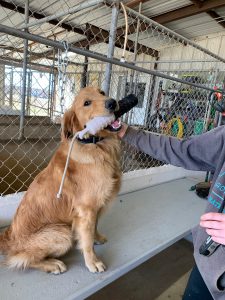
Intermediate Retriever Training
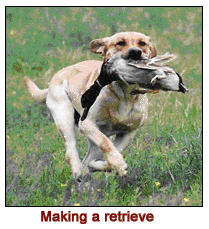
Dogs must have successfully completed the basic program before beginning this phase of training. Retrievers will be taught to “count” or mark multiple birds down. A dog will also learn basic handling skills so that it can sit to the whistle, look to the handler for direction, and take hand signals on shorter blind retrieves. Dogs will be taught to sit to flush and to quarter in the field.
Lots of field and water training along with a healthy balance of yard drills are incorporated into the intermediate stage so that once a dog completes this portion of training, an owner will have a trustworthy gun dog.
Advanced Retriever Training
For the discerning handler, the advanced program produces a finely tuned finished gun dog. Advanced training concepts of marking and handling are refined, along with added elements of control.
A finished dog will learn to navigate more difficult terrain with extended distances on multiple retrieves. It will also learn to honor another dog’s work. Handling skills will be honed so that difficult blinds with suction, wind, and obstacles can be tackled with confidence and enthusiasm. Upon completion of this level, a handler will possess a mature, well-behaved hunting companion.
While dogs are in training, owners are encouraged to visit and take part in the training process.
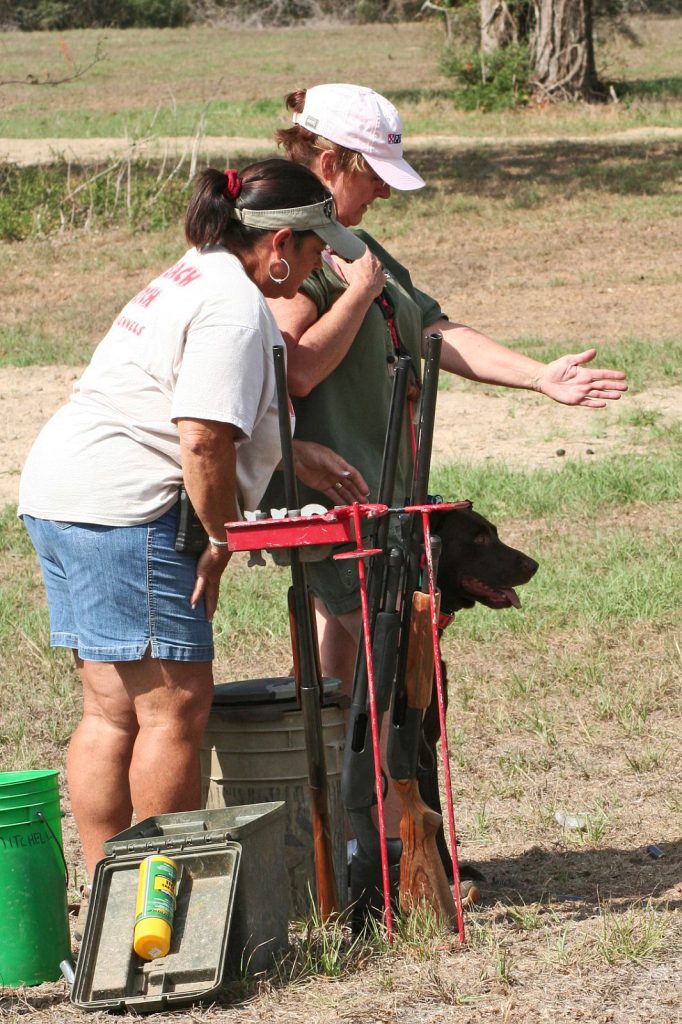
Hunt Test Training/Participation
We actively participate in AKC and UKC hunt tests and have titled numerous dogs at all levels. Hunt test participation is an excellent way to keep a dog working well during the off season. Both the American Kennel Club and The United Kennel Club host sanctioned events through local clubs by offering stakes for beginning, intermediate and advanced level dogs. These tests simulate actual hunting conditions, and dogs are judged against a defined standard. Points accumulated result in recognized titles awarded and are recorded on the dog’s pedigree. What a great way for a dog to gain poise, skills, and experience to be used on a real hunt!
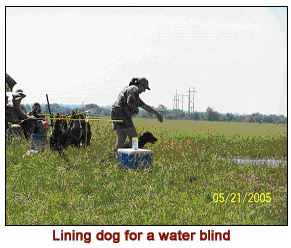
All Breed Obedience Training
Any dog owner wants a dog to be well behaved. We offer all-breed obedience training. The five basic commands of SIT, HEEL, HERE, STAY, and DOWN are instilled in a dog’s behavior by repetition and praise. Once solid, those commands can be reinforced with the advantage of an electronic collar for off-lead work. Owners are encouraged to visit and learn the commands and corrections necessary to keep the dog solid once it goes home.

